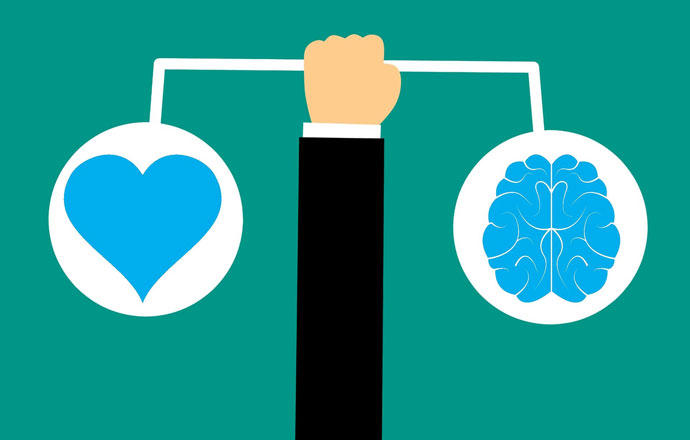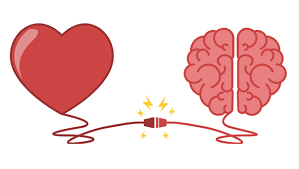IQ, EI and EQ: relationship and concept
“Emotional giftedness is a meta-ability that determines how well we are able to use any other skills and abilities that we have, including” untrained “intelligence”
Emotions play an important role in a person’s life. But can we always control them and think about why we do certain actions? What do emotions mean to us?

Everyone is familiar with the concept of a person’s IQ: the coveted coefficient speaks of remarkable abilities and high intellectual development. But emotional intelligence is no less important: many researchers have worked on its study, who have proven its importance for life, career and personal development. Moreover, this applies to almost all areas: emotional intelligence has become one of the main tools for effective communication with the environment and in business management.
Emotional intelligence is a person’s ability to understand and control his emotional state in order to solve some problems. The concept received the abbreviation EI , and the level of its development, the coefficient, is designated as EQ . The direction is closely related to human intelligence ( IQ ), but there are no clear metrics that exist today for determining IQ.
“It is important to understand that EI is not the opposite of IQ, it is not a triumph of the heart over the head – this is the only way to intersect both”
Physiologist Reuven Bar-On made a great contribution to the study of the direction, he also developed a questionnaire to determine his level of development in humans (EQ coefficient). It was found that with a high level of EQ, a person achieves better results in life, builds a good career, has the ability to make quick decisions and is easy to communicate.
He identified five areas , which are united the concept of “emotional intelligence”:
1. Intrapersonal (self-respect, understanding of one’s emotions, confidence in one’s actions).
2. Resistance to stress (managing stressful situations, controlling impulsive actions).
3. Interpersonal direction (empathy, social fitness).
4. Adaptability (adaptation, problem-solving ability, flexibility).
5. General mood (happiness, optimism).

EI is very important for personal success and career development. A person with a high EQ coefficient feels the mood of colleagues and knows how to adapt to work in a new team. When the vectors EI and IQ touch, a “strategy of creators” is formed, which activates the potential of the personality. A person realizes and improves himself, and the more developed these vectors, the wider the range of his capabilities in the spheres of self-management, influence on people.
You can trace the chain of interconnection of a high level of EI and a person’s achievements:
High EI: Understanding Emotions – Managing Emotions – Job Satisfaction – High Results – Acceptance – Feeling Significant – Greater Achievements.
An emotionally wise, savvy person is more flexible in communication. He understands the feelings of the interlocutor and foresees his reaction to some act. The direction is very close to empathy, and it is one of its components of EI and is designed to understand feelings, empathize and sympathize with others.
How to develop emotional intelligence?
Daniel Goleman achieved great success in the study of EI, who wrote the book “Emotional Intelligence. Why can it matter more than IQ. ” He emphasized the undeniable importance of developing and exploring emotions: the ability to understand and manage your feelings is the first step to realizing your inner potential.
There are many reasons why developing emotional intelligence is important.
Well-developed EI allows:
- manage emotions, motivate yourself, create favorable social connections;
- to achieve heights in the professional field, to be happy in your personal life;
- deal with stress, deal with negative emotions and generate positive;
- constantly improve IQ;
- set priorities and goals correctly;
- improve labor productivity, be more productive at work;
- make the right decisions, not based on spontaneous emotions;
- communicate with people competently;
- resist manipulation;
- successfully conduct negotiations and business meetings.
A low level of emotional intelligence can lead to the development of alexithymia (lack of ability to recognize feelings), psychosomatic disorders.
The intense rhythm of life, the need to constantly be in good shape and actively respond to the changing world negatively affects the psychological state of a person. As a result – a high level of stress, apathy, work burnout. Stress destabilizes, disrupts the natural emotional balance, and negatively affects health. It is very important to recognize the symptoms of a destructive state in time and prevent its effect on the body.
One of the most effective ways to reduce the stress state is the systematic thinking. Where and how to learn to manage the thinking of subordinates, be more productive at work, correctly delegate work and instill responsibility in employees? ???? On the course of Alexander Fridman “Managing the choice of subordinates: how to lay the foundation for the right corporate culture” . Registration for the course is open twice a year, the nearest one is on October 9, 2020. Details on the link below ????????????
You can develop EI sequentially by following these exercises:
1. Memorize, write down, analyze your reactions that you experience in communicating with other people on an emotional level. Try not to ignore both the positive and the negative, as this is an important piece of input.
⠀
2. Learn to listen to a person and “see” his emotions: they are manifested not only in words, but also in body language and gestures.
⠀
3. Trace the relationship between your emotions and behavior. For example, in anger, a person is usually nervous, speaks in a raised voice, in embarrassment, he mutters indistinctly. Learn to manage emotions, smooth them out in order to use them to your advantage.
⠀
4. Work on empathy to help you understand how the other person is feeling and empathize with them.
⠀
5. Improve your emotional memory capacity. To do this, you need to create a special notebook where you will write down your emotional reactions. After a while, looking back, with the help of a notebook, you will be able to analyze your emotions and remember how you react to certain actions.
⠀
6. Try not to suppress emotions, but do not explode over trifles, but rather practice developing the desired reactions to actions.
A specialist with high emotional intelligence is in demand in any field. Today employers pay attention not only to the professional skills and mental abilities of the candidate, but also to the emotional components of the personality. A high level of emotional intelligence develops such character traits as responsibility, the ability to work in a team, stress resistance, empathy. And these qualities in prevailing cases are much more important for work than a diploma or IQ test scores.
The topic of emotional intelligence and its development is very broad. If you are interested in more information, supplement our article with links to TED conferences and books.
???? TED Conferences:
???? Tiffany Watt Smith History human emotions ”
???? Lisa Feldman Barrett” You are not at the mercy of your emotions – your brain creates them ”
???? Books:
⠀
???? Daniel Goleman “Emotional intelligence. Why does it matter more than IQ ”
????Susan David “Emotional Flexibility. How to learn to enjoy change and enjoy work and life ”
???? Travis Bradberry, Gene Greaves” Emotional Intelligence 2.0 ”
